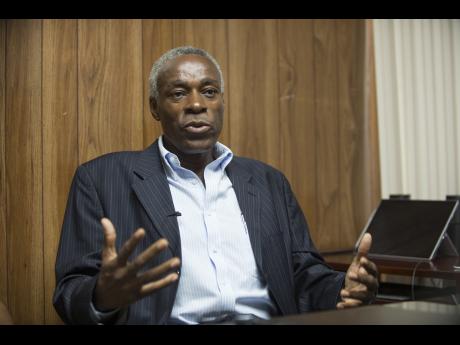Jamaica has always been chasing after cheaper energy, but the policy has largely been underpinned in the past by fiscal imperatives or affordability amid volatile world oil prices.
But now the thinking behind energy policy is changing, the focus now being its potential as a major driver of economic growth.
The conversion to cleaner and more affordable energy sources and investments in the build-out of a reliable and sustainable infrastructure are meant to shore up the global competitiveness of Jamaican firms through cheaper energy and, consequently, lower production costs.
The initiative is not a project in itself, but various departments and units of government have been tasked with deliverables to get to “a modern, efficient, diversified and environmentally sustain-able energy sector”.
Clean energy generation is now the remit of the Generation Procurement Entity, the GPE, the successor body to the Electricity Sector Enterprise Team, and is headed by former ESET member and its last acting chairman, Professor Alvin Wint.
Renewables and liquefied natural gas, LNG, are part of that mix.
“The three projects that have been approved, but are not yet installed and are currently being monitored to implementation, are the 190MW JPS LNG plant in Old Harbour; the 94MW Jamalco LNG cogeneration plant being constructed and financed by New Fortress Energy; and the 37MW solar plant being developed by Eight Rivers Energy Company,” said Wint, who is also professor emeritus of international business at the University of the West Indies.
The Old Harbour plant is, he said, about 65 per cent complete and scheduled for commissioning in March 2019. The Eight Rivers Solar Plant in Westmoreland is said to have achieved financial close and commissioning is targeted for early 2019. And the Jamalco plant is said to have received all necessary approvals and is targeted for completion in early 2020.
“When added to the Bogue 120MW plant which was converted in 2016 to use LNG, and the renewable energy plants that have recently been commissioned, these projects, together, represent a significant retooling of the electricity-generating sector and a diversification of Jamaica’s electricity-generating fuel sources, in line with the National Energy Policy,” Wint said.
The Government, through the Ministry of Science, Energy and Technology, is also said to be setting up an Integrated Resource Planning Unit to form the basis for determining future energy procurement activity.
As for the Jamaica Special Economic Zones Authority, JSEZA, which is an investment promoter for the low-tax zones, the nascent state agency is pitching in on the initiatives to drive energy costs lower, as it goes after heavy industry operators.
“In order to attract these energy-intensive industries, we have to bring the cost of energy down to a level that is affordable and allows them to compete in the global market. So we have been working very closely with energy providers – renewable, LNG, other sources – to bring the price of energy down,” said JSEZA Chief Executive Dr Eric Deans.
Bunkering, or the fuelling of ships, is a growing activity within a planned petroleum economic zone, one of the specialised areas being pioneered by JSEZA, especially in light of a requirement for ships to utilise cleaner fuel, such as LNG, as of 2020. LNG is also feedstock for other industries used to produce chemicals, plastics and other products.
State-owned Petrojam and private firm West Indies Petroleum now constitute the beginnings of the petroleum SEZ, Deans told the Financial Gleaner.
GPE Chairman Wint, meanwhile, is clear about the connection between energy and economic growth.
“Any industry in which Jamaica is likely to have a competitive advantage is reliant on a reliable energy supply at the lowest feasible cost,” said Wint.
“The focus of Jamaica’s recent electricity-generating procurement process has been to improve the reliability of the generation system by adding new, efficient generating capacity, while diversifying fuel sources in an attempt to get fuel sources that are projected to be lower cost, with less price variability than the heavy fuel oil and automotive diesel oil that currently dominate as fuel sources,” he explained.
The energy sector investments, he added, are themselves generating growth-inducing economic activities.
Diane Edwards, the president of Jampro, says her agency uses the country’s growing clean energy build-out as a major selling point for investment and trade promotions.
Jampro’s promotional information touts Jamaica’s renewable resources, namely wind, biomass, hydro and solar energy, and continuous research into the technologies, as both central to its energy security as well as offering the prospect, down the line, to transition into an independent energy producer.
“The country is advanced in the development of renewable energy, surpassing a number of its Caribbean neighbours,” the brochure states.




Leave A Comment